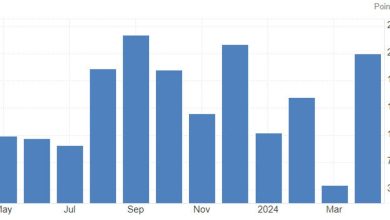China Concerned About Overcapacity, but It Sees It Differently From US

- US Treasury Secretary Janet Yellen expressed concerns over Chinese overproduction of goods during her recent visit to the country.
- China has responded to Yellen’s concerns, but Beijing also worries about overcapacity, one economist said.
- However, China’s concerns on this issue are different from those of the United States and other countries.
China produces too much stuff – and Beijing knows it too.
Like the United States and all of China’s trading partners, Chinese authorities are concerned about industrial overcapacity and want to curb it.
But while Beijing is aware and concerned about overproduction, it doesn’t see it in the same way as the United States and China’s other trading partners, one economist said.
Chinese policymakers are mainly concerned about “disorderly competition” and low industrial capacity utilization rates, Yue Su, senior China economist at the Economist Intelligence Unit, or EIU, wrote in a note Wednesday.
“From China’s perspective, it is essential to address overcapacity, especially when it leads to deflation, undermines the health of the banking sector and causes fiscal stress for local governments,” Su added.
In other words, for the United States, “overproduction” means having too much stuff. But when China considers the same problem, it worries that competition is becoming so intense and disorderly that it leads to too many unprofitable companies. Beijing is also concerned about having so much capacity that factories are unable to use at optimal levels.
However, the United States and other countries are more focused on rapidly increasing China’s overall capacity as well as the country’s production volume, the economist said.
Yellen warned of the impact of Chinese overproduction on the United States and other countries.
Su’s comments follow U.S. Treasury Secretary Janet Yellen’s criticism of overcapacity and overproduction in China during her recent visit to the country that ended Tuesday.
“China is now simply too big for the rest of the world to absorb this enormous capacity,” Yellen said at a news conference Tuesday.
After all, Chinese dumping of products like steel flooded the world more than a decade ago, decimating industries and communities around the world – a scenario the world wants to avoid repeating.
“The PRC’s actions today can change global prices. And when the global market is flooded with artificially cheap Chinese goods, the viability of U.S. and foreign companies is called into question,” Yellen added, referring to the People’s Republic of China. the official name of the country.
In addition to the United States, the European Union and even emerging countries like Thailand are concerned about the deluge of cheap Chinese products and their impact on local industries.
For the US and EU, the rapid increase in capacity in green sectors – such as electric vehicles, solar cells and lithium-ion batteries – is of particular concern. The three hot new industries – in which the US and EU also compete – are what Beijing has identified as the new drivers of China’s economic growth.
China has hit back at criticism over overproduction. In his annual policy report, Published last month, Chinese Premier Li Qiang pledged to “prevent overcapacity.”
“The best way to address such imbalances is to let market forces play their role according to the law of value,” Mao Ning, Chinese Foreign Ministry spokesperson, said on Tuesday.
“Politicizing overcapacity or any other economic and trade issues and arbitrarily linking them to security goes against the laws of economics and harms our own industries and the stability of the world economy,” Mao added.
China expected to still dominate the green sector
The divergence in how China and its trading partners view the issue of overcapacity means the country’s oversupply of green products, as well as others, is likely to persist, economist Su said.
After all, China’s trade surplus with the world means Beijing may have less incentive to tackle the problem, Su added.
China recorded a trade surplus of $823 billion last year, according to Chinese customs data. Meanwhile, the U.S. trade deficit with China stood at nearly $280 billion in 2023, according to the Commerce Department.
Su expects further investigations into Chinese subsidies and dumping in China’s manufacturing industry for the rest of 2024. The probes could even extend to overseas Chinese factories, such as those in foreign countries. Southeast Asia, she added.
Analysts expect the U.S. debate over its trade issues with China to intensify as the presidential election season approaches.
Despite this, the EIU expects China’s manufacturing industry to continue to dominate the green sector – even if factories make fewer profits.
“Supply chain efficiencies, intense competition in the private sector, and efforts by local governments to protect domestic businesses will contribute, even as industry profits continue to be reduced,” Su wrote .
businessinsider



